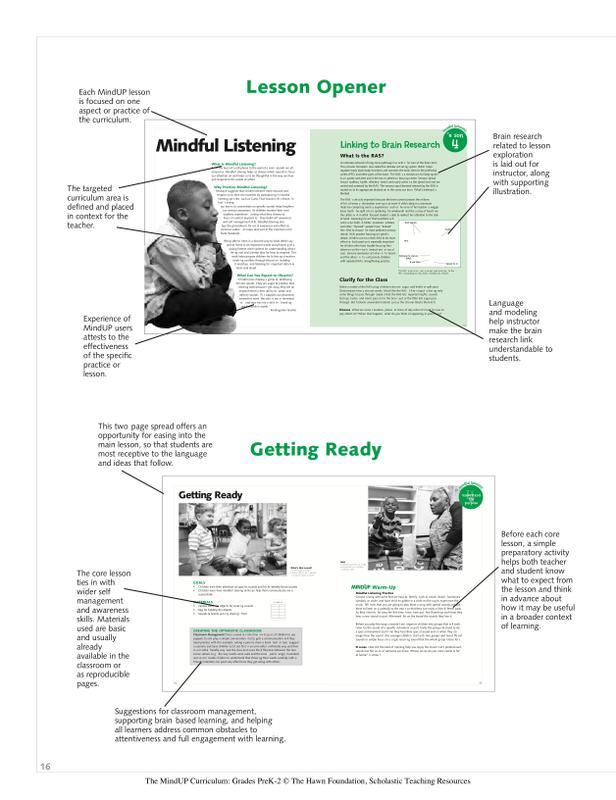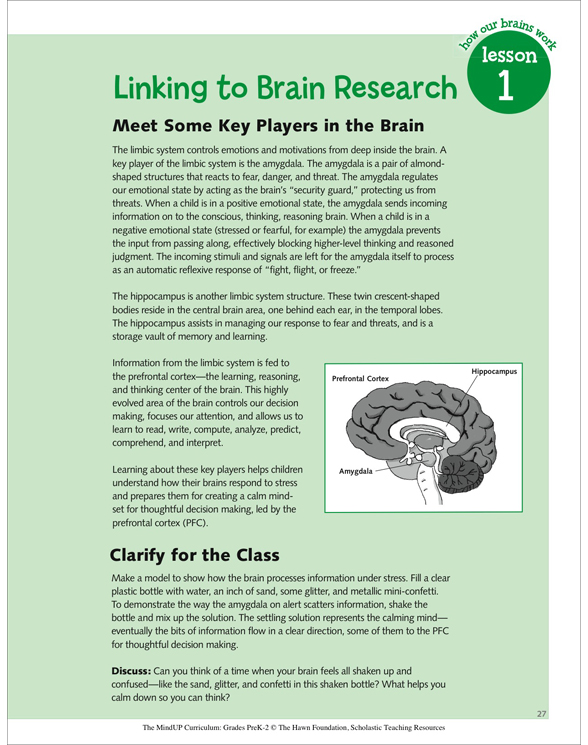
Goldie Hawn s MindUP Program Children Brain Health. Intentional attention can be considered as the self-regulation of attention" (Bishop et al, 2004). 10FEBMy Hero Mania codes in Roblox Free spins September 2022 08FEBCensorship In Schools And The. Includes a full-color, innovative teaching poster with fascinating facts about the brain This research-based curriculum features 15.

These lessons only cover Unit 1 of the book. A comprehensive guide to helping all learners focus and reach their potential through brain-centered management and teaching strategies. It guides you through 12 mini lessons that introduce mindfulness, the MindUp way. You do need to have the book to do all the lessons.

Intention - "conscious intention extends from an intention to practice, to the intentionality one brings to directing, sustaining or switching attention. This slideshow was made to accompany the book The MindUP Curriculum - Grades 3-5. MindUP at Home To go along with distance learning due to COVID-19, MindUP lessons have been converted into video format.
Mindup curriculum free professional#
Coupled with formal professional development in the program, MindUP allows students to build a scaffolding of awareness and self-regulation that will increase self-control, empathy, optimism, and academic goals.
Mindup curriculum free series#
134) (Bishop et al, 2004 Kabat-Zinn, 1990 Shapiro et al, 2006)Īttention - "includes focused, broad, and sustained attention, and skills in switching attention form one stimulus to another" (p. Delivered by a teacher in the classroom, MindUP provides an immersive discovery experience and daily practices to shift a child’s perspective, drive positive behavior and improve learning and scholastic performance. The MindUP curriculum is a 15-lesson series published by Scholastic and is based on the four pillars: neuroscience, social-emotional learning, positive psychology, and mindful awareness. Brown & Ryan, 2003 Kabat-Zinn 1990).īurke (2010) states that there are 3 major components of mindfulness:Īttitude - "Mindfulness practice is grounded in particular attitudinal foundations, which include non-judgement, acceptance, trust, patience, non-striving, curiosity and kindliness" (p. Mindfulness is considered to be a state of consciousness that incorporates self-awareness and attention with a core characteristic of being open, receptive, and non-judgemental (e.g.

Although definitions of mindfulness are plentiful and may vary across settings and disciplines, a common theme across all of the existing definitions is that mindfulness is a way of directing attention.


 0 kommentar(er)
0 kommentar(er)
